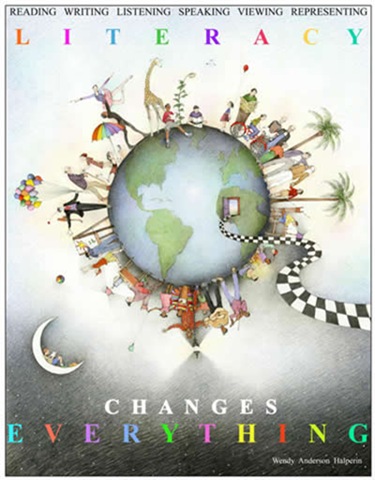A follow up to yesterday's riff acknowledging the barriers which deter regular folks from actively crafting web applications.
We're hardwired to process information, whether it's visual, audio, or an abstract mix. But millions of years of evolution hasn't prepared us for a global web of data and how to optimize our personal utility of it. Fortunately, our culture over the past few thousand years has incrementally pointed us in the right direction. The communication of relevant information has exceeded our close knit social circles since the advent of the written word, and more recently the printing press. Information travels around the world and survives for millennia.
Recently the barrier to self publishing vanished with the rise of blogs and social web destinations. Authors no longer require permission from centralized gatekeepers to get on a bookstore shelf. Instead they struggle to earn our attention by crafting irresistible content. Well crafted ideas find their way to us through browsers and distributed electronic friendly formats. While books may never fade entirely, our dependence on them as the sole provider of knowledge is waning. Books are both enriched and complemented by distributed knowledge networks and social video*.
The end of knowledge isolation
We are witnessing the end of isolated knowledge sources. The clearest example of this transformation is the obsolescence of encyclopedias. Wikipedia is a broad and heavily supported medium for capturing relevant information and distributing it to anyone with a web browser. Updates and corrections to articles happen continually and are discussed by a passionate community of contributors. Thousands of authors serve as curators to Wikipedia pages, providing intermediate to expert level documentation in a variety of languages.
Wiki is the core technology that enables Wikipedia and is available to anyone. Yet even approachable architectures like wikis leave information stranded at a single domain, without carefully writing code to extract structured data. Adding structure to data paired with web apps is the way forward. By doing so, those literate in the basics can draw upon remote curated information and synthesize it for purposes beyond it's original production.
The net as one big database
Skilled web hackers craft dynamic conduits of information. Expert designers bring to life user interfaces to navigate complex information streams. These are necessary fields of expertise for significant projects, but are overkill for the most basic web apps. Simple utilities enable novices to observe remote real time updates and novel content with specific topics. Once followed, discrete messages are forwarded for further review (email, web or app interface, smoke signals).
Google Alerts provides an effective means for tracking specific keywords but is only the tip of the iceberg. Datasift has many advanced features for tracking information by keyword, source, location, and service among other features. There's still a need for a polished visual front end to these services for folks who aren't ready or interested in writing their own queries. Beyond this small example ongoing search queries represent a small fraction of potential mini-apps that folks may need for their personal or professional curation.
Notes:
*= My recent use of books has been for supplementary documentation, intriguing ideas, and entertainment. While practical video screen casts and specific documentation are a few key strokes away, dedicated reading from a cohesive edited source plays a vital role in the learning process.

